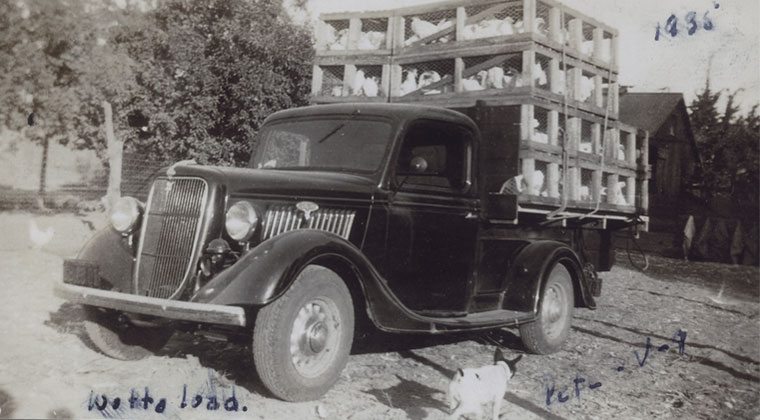
When we look a little further back in history — to the early challenges to California’s Alien Land Law — we find Sonoma County as guilty of legal and verbal abuse of Asians as any other provincial rural community. The Alien Land Law enacted in 1913 held that aliens ineligible for citizenship — which included all Asians — could not own land in California.
— LeBaron, Gaye. “No Welcome Mat for Japanese in the Golden State.” Santa Rosa Press Democrat, April 26, 1992.
Like today’s violent anti-Asian hate crimes related to Covid-19, anti-Asian sentiment in the United States surfaced throughout the late 19th and into the 20th century. Much of this discrimination was sanctioned by the U.S. government through laws such as the 1882 Chinese Exclusion Act, which suspended the immigration of Chinese laborers; the California Alien Land Law of 1913, which prevented immigrants who were ineligible for citizenship from purchasing or signing long-term leases on agricultural land; and Executive Order 9066, signed by President Franklin Roosevelt in 1942, which allowed for the involuntary detention of Japanese and Japanese-Americans in incarceration camps throughout the United States.
Sonoma County was not immune to the prejudices that were codified in the 1913 California Alien Land Law, which was enacted in response to white landowners’ fear of economic competition. Japanese families across the county had varying levels of success in advocating for their rights to purchase and lease the land from which they built their livelihoods, raised their families, and fed the community.
By targeting “aliens ineligible for citizenship”, the white elite leveraged land ownership and the law to prevent nonwhite groups from becoming lawfully permanent and participating members of Californian society. The resilience of Japanese Americans as well as other targeted minority groups ultimately prevailed in a series of Supreme Court decisions which invalidated alien land laws across various states by 1952 and concluded that forbidding aliens from owning land was a violation of the equal protection clause found in the U.S. Constitution’s 14th Amendment.
Further Reading
“Chinese Immigration and the Chinese Exclusion Acts.” Milestones in the History of U.S. Foreign Relations. Office of the Historian, Foreign Service Institute. United States Department of State.
Giri : the Sonoma County Japanese American Citizens League Oral History Project. Sonoma County Japanese American Citizens League, 2003.
Patsel, Consuelo M. The Loss of Property of the Japanese During World War II : With Special Emphasis on Sonoma County, California, 2013.
Rawitsch, Mark H. The House on Lemon Street Japanese Pioneers and the American Dream. University Press of Colorado, 2012.
The War Relocation Authority and the Incarceration of Japanese-Americans During World War II Collection. Harry S. Truman Library and Museum, Independence, MO, 2021.